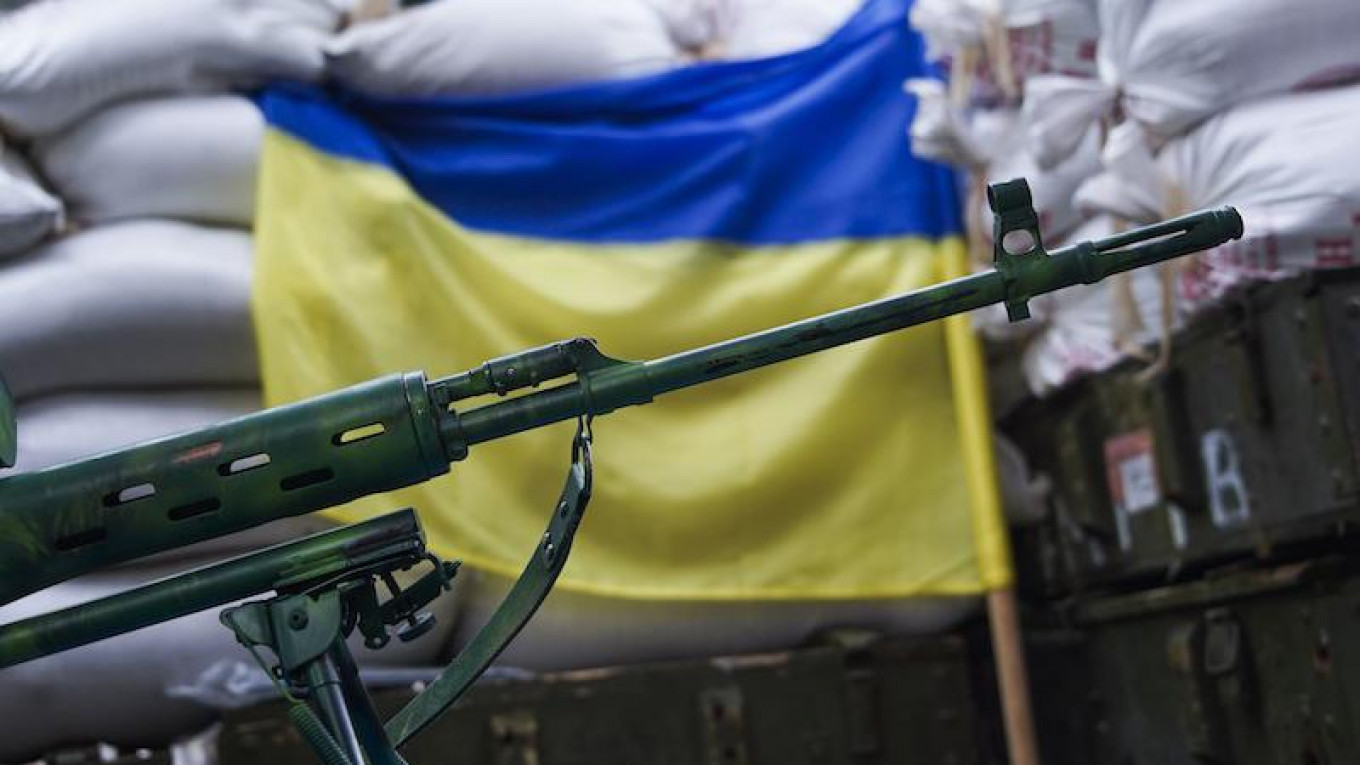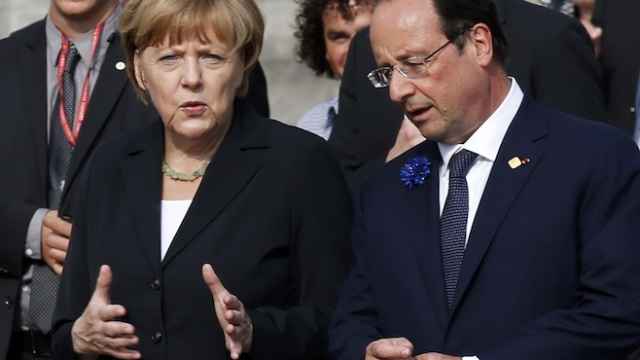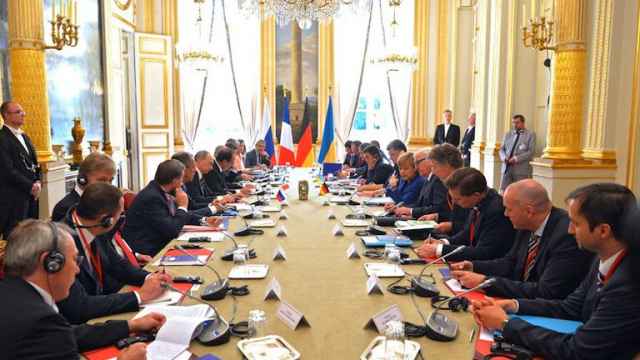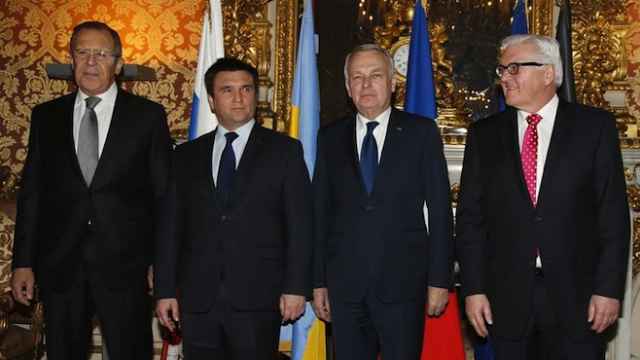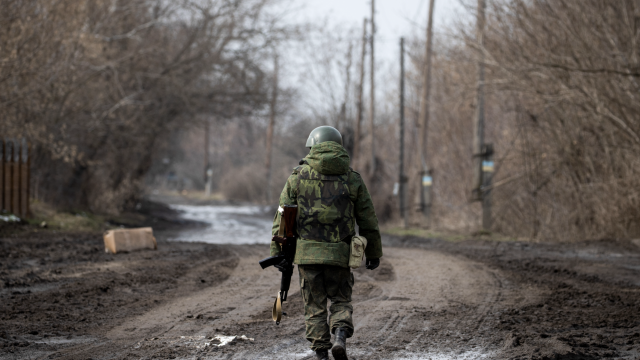The leadership of the self-proclaimed Donetsk and Luhansk People’s Republics rejected a proposal for an armed OSCE monitoring mission in the Donbass during the most recent Normandy Format negotiations in Berlin on Wednesday.
Vladislav Deynego, a representative of the Luhansk People's Republic (LPR), said there was no need for such a mission, Interfax reported. “Also this is unrealizable from a technical standpoint.There needs to be a new mandate and a new mission," he added.
Eduard Basurin, Deputy Commander of the Donetsk People’s Republic (DPR), stated that the existing OSCE monitoring mission is “observational and civilian.” The presence of a foreign, armed contingent would violate the Minsk II agreement, he said.
The LPR representative also asserted that the “new roadmap” mandated in the Minsk II agreement is based upon offers that have not yet been realized. For example, the Minsk agreement requires elections to be held in the occupied territories. But for that to happen, Ukrainian and rebel authorities must determine exactly where the voting will take place and the separatists must be granted amnesty, he said.
However, Ukrainian President Petro Poroshenko stressed that elections in the Donbass can only take place once security is established in the region.
Earlier, the Slon.ru website reported that the Normandy Format group had agreed on the need for an armed OSCE monitoring mission in the disputed territories.
This was the fifth meeting of the Normandy Format talks, which include representatives of Ukraine, Germany, France, and Russia. Russian Foreign Minister Sergei Lavrov and presidential aide Vladislav Surkov, believed to be the Kremlin's main contact with the separatist leadership in the Donbass, represented Russia in the talks.
A Message from The Moscow Times:
Dear readers,
We are facing unprecedented challenges. Russia's Prosecutor General's Office has designated The Moscow Times as an "undesirable" organization, criminalizing our work and putting our staff at risk of prosecution. This follows our earlier unjust labeling as a "foreign agent."
These actions are direct attempts to silence independent journalism in Russia. The authorities claim our work "discredits the decisions of the Russian leadership." We see things differently: we strive to provide accurate, unbiased reporting on Russia.
We, the journalists of The Moscow Times, refuse to be silenced. But to continue our work, we need your help.
Your support, no matter how small, makes a world of difference. If you can, please support us monthly starting from just $2. It's quick to set up, and every contribution makes a significant impact.
By supporting The Moscow Times, you're defending open, independent journalism in the face of repression. Thank you for standing with us.
Remind me later.


